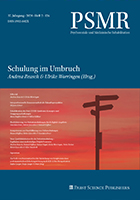"Despite the gradual nature of continuity in early development, cross-cultural studies indicate that there exist discontinuities in the developmental milestones achieved in the early years.
For example, the advances in infant intelligence that Piaget - studying his babies in Geneva - labelled ´tertiary circular reactions´ represent a truly new level of infant cognitive capacity. The toddler, deliberately varying actions to produce new effects and outcomes, carries out ´experiments in order to see´. Not only in Geneva, but in many other cultures has this impressive new ability been found among infants between about 18 and 24 months.
Thus, research impelled by the Piagetian paradigm has revealed universalities in the orderliness of development of more mature cognitive capacities throughout infancy. With behavior patterns similar to Cambridge infants, Guatemalan Indian babies living in villages near Lake Atitlan showed a lawful, invariant sequence in developing successful responses to object permanence problems ..."
Literature on the subject:
International Perspectives on Human Development
Comunian, L.; Gielen, U.P. (Eds.)






















